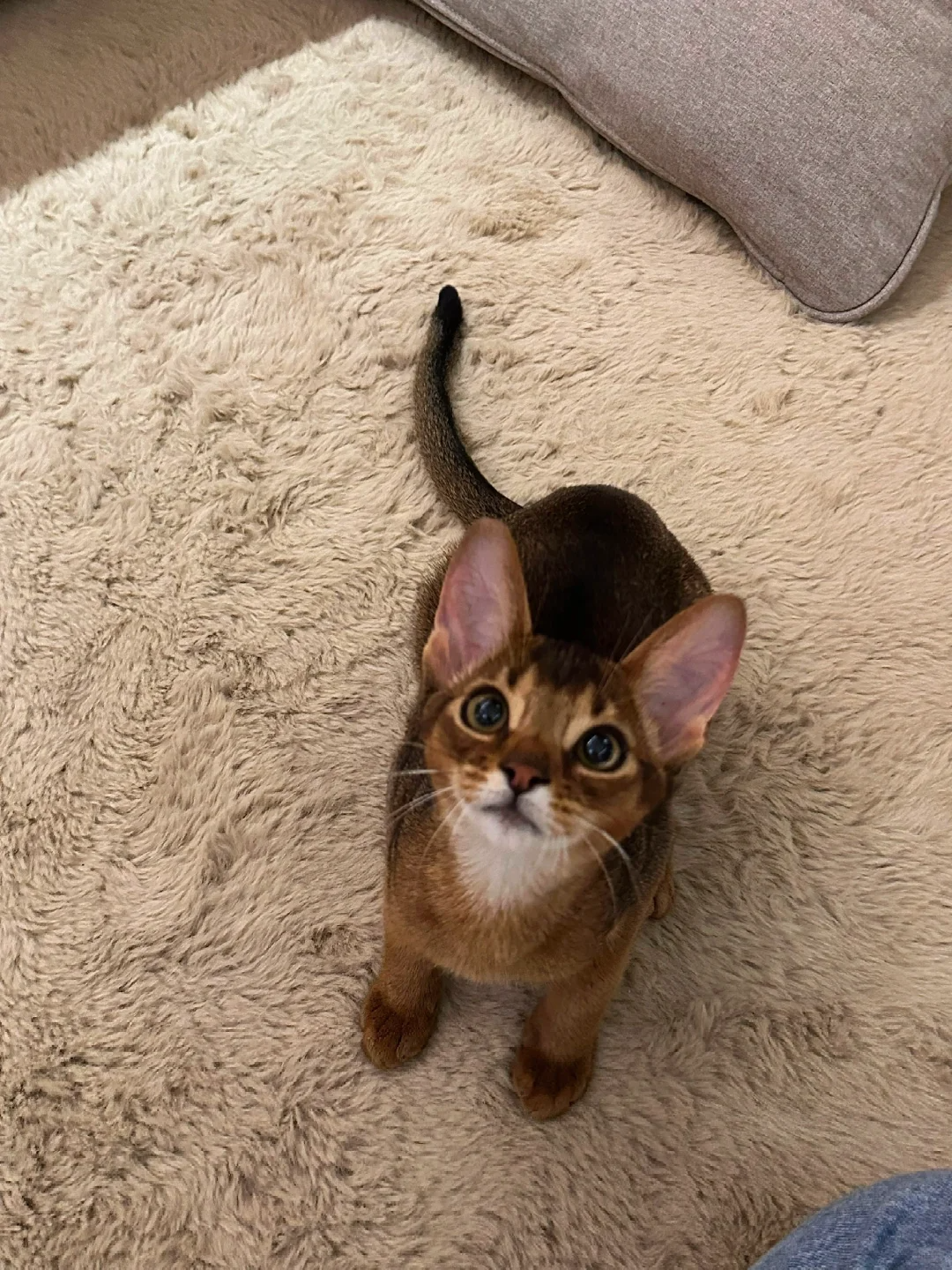 Kittens, despite their playful and seemingly carefree nature, are surprisingly sensitive creatures that can experience significant stress. Understanding feline stress management is essential for every cat owner, as chronic stress can lead to behavioral problems, health issues, and a diminished quality of life. Learning to recognize stress signals and implement effective management strategies ensures your kitten develops into a confident, well-adjusted adult cat.
Kittens, despite their playful and seemingly carefree nature, are surprisingly sensitive creatures that can experience significant stress. Understanding feline stress management is essential for every cat owner, as chronic stress can lead to behavioral problems, health issues, and a diminished quality of life. Learning to recognize stress signals and implement effective management strategies ensures your kitten develops into a confident, well-adjusted adult cat.
Understanding Kitten Stress
Stress in kittens manifests differently than in humans. These young felines experience stress from various sources including environmental changes, separation from mother and littermates, loud noises, unfamiliar people or animals, and disruptions to routine. Their developing nervous systems make them particularly vulnerable to stress during critical socialization periods between 2-7 weeks of age.
Recognizing stress signals early allows for prompt intervention. Common signs include hiding excessively, decreased appetite, inappropriate elimination outside the litter box, excessive grooming or hair loss, aggression, vocalization, dilated pupils, flattened ears, and changes in sleep patterns. Some kittens become hyperactive when stressed, while others withdraw completely.
Creating a Safe Environment
Environmental management forms the foundation of stress reduction. Kittens need secure spaces where they feel protected and in control. Provide multiple hiding spots throughout your home using cat caves, cardboard boxes, or designated quiet rooms. Vertical spaces like cat trees allow kittens to observe their environment from safe vantage points, satisfying their natural instinct to survey territory from elevated positions.
Maintain consistency in your kitten’s environment whenever possible. Keep litter boxes, food bowls, and sleeping areas in the same locations. Sudden furniture rearrangement or home renovations can trigger stress, so make changes gradually when necessary. If major disruptions are unavoidable, create a sanctuary room where your kitten can retreat with familiar items, food, water, and litter box.
Routine and Predictability
Kittens thrive on routine and predictability. Establish consistent feeding times, play sessions, and sleep schedules. Regular routines help kittens feel secure because they can anticipate what happens next, reducing anxiety about unknown events. Even something as simple as feeding at the same times daily provides comfort and structure.
During stressful periods like veterinary visits or introducing new family members, maintaining other routines becomes even more important. These familiar patterns serve as anchors, reminding your kitten that despite changes, some aspects of life remain stable and predictable.
Proper Socialization
Early socialization significantly impacts a kitten’s stress resilience throughout life. Between 2-7 weeks, expose kittens gradually to various people, gentle handling, household sounds, and positive experiences. This critical window shapes their perception of the world as safe or threatening.
However, socialization must be gentle and positive. Forcing interactions or overwhelming kittens with too much stimulation causes stress rather than building confidence. Allow kittens to approach new experiences at their own pace, rewarding brave behavior with treats and praise. If a kitten shows fear, reduce intensity and try again later with a gentler approach.
Environmental Enrichment
Boredom and lack of stimulation create stress just as overwhelming environments do. Provide appropriate environmental enrichment through interactive toys, puzzle feeders, scratching posts, and regular play sessions. Kittens have enormous energy and hunting instincts that need healthy outlets.
Rotate toys regularly to maintain novelty and interest. Dedicate 15-20 minutes twice daily to interactive play using wand toys that mimic prey movements. This physical activity releases pent-up energy, provides mental stimulation, and strengthens your bond with your kitten. After vigorous play, kittens typically eat, groom, and sleep – a natural stress-reducing cycle.
Window perches offer entertainment through “cat TV” – watching birds, squirrels, and outdoor activity. However, ensure windows are secure and consider bird feeders placed at safe distances to provide viewing opportunities without creating frustration from unreachable prey.
Litter Box Management
Litter box stress significantly impacts kitten wellbeing. Follow the “n+1” rule: provide one more litter box than you have cats. Place boxes in quiet, accessible locations away from food and water. Kittens need privacy for elimination but also escape routes if they feel vulnerable.
Choose appropriate litter – many kittens prefer fine-grained, unscented options. Keep boxes impeccably clean, scooping at least twice daily. Dirty litter boxes cause stress and may lead to inappropriate elimination, creating additional behavioral problems. Consider using tofu cat litter, which is dust-free, environmentally friendly, and gentle on sensitive kitten paws.
Managing Specific Stressors
Veterinary Visits
Vet appointments are necessary but stressful. Acclimate your kitten to their carrier by leaving it out with comfortable bedding and treats inside. Practice short car rides to positive destinations before actual vet visits. Consider carriers with removable tops, allowing examination without forcing your kitten out into unfamiliar territory.
Introducing New Pets
Gradual introductions reduce stress when adding new animals. Use scent swapping with blankets or toys before visual contact. Feed animals on opposite sides of closed doors, creating positive associations. Supervise initial meetings closely, providing escape routes and intervening if interactions become tense.
Moving and Travel
Major changes require extra stress management. When moving homes, set up a safe room first with all familiar items. Gradually allow exploration of the new space. During travel, use pheromone sprays in carriers and vehicles to promote calmness.
Pheromones and Calming Aids
Synthetic feline facial pheromones (like Feliway) can significantly reduce environmental stress. These products mimic natural calming pheromones cats produce, creating feelings of security and familiarity. Use diffusers in main living areas or spray carriers before travel.
For severe stress or anxiety, consult your veterinarian about supplements or medications. Options include L-theanine, chamomile, or prescription anti-anxiety medications for extreme cases. Never administer any medication without veterinary guidance.
Building Confidence
Confidence-building exercises help kittens develop stress resilience. Clicker training teaches problem-solving skills while providing mental stimulation and strengthening your bond. Start with simple behaviors like “sit” or “touch,” gradually increasing difficulty as confidence grows.
Positive reinforcement for brave behavior encourages kittens to face minor challenges. When your kitten investigates something new or overcomes a fear, immediately reward with treats and praise, reinforcing courageous actions.
Conclusion
Effective stress management ensures your kitten develops into a confident, well-adjusted adult cat. By creating safe environments, maintaining routines, providing appropriate enrichment, and recognizing stress signals early, you minimize anxiety and promote emotional wellbeing. Remember that each kitten is unique with individual stress triggers and coping mechanisms. Patient observation, consistent care, and willingness to adapt your approach create the foundation for a happy, stress-free feline companion who thrives in your home for years to come.
 Shandong Vlink Pet Products Co., Ltd
Shandong Vlink Pet Products Co., Ltd


